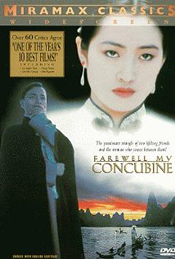Chinese movie market challenges Hollywood
 Chinese film Black Coal, Thin Ice wins best film and best actor awards at this year's prestigious Berlin Film Festival
Chinese film Black Coal, Thin Ice wins best film and best actor awards at this year's prestigious Berlin Film Festival
Thu, 20 Feb 2014 14:28:00 GMT
New professor investigates Chollywood – currently the second largest film industry in the world
THE film awards season – culminating in the Oscars – is in full swing. Movies that carry off a coveted statuette can be sure of a box office boost. But the global marketing of films is a complex business and is an area of specialist expertise for a recently-appointed University of Huddersfield professor. One of her latest fields for research is the massive movie market in China, where cinemagoers are displaying a special enthusiasm for new formats such as 3D.
 Caroline Elliott (pictured right), who will play a key role in the development of economics research and teaching in the University’s Business School, is Professor of Industrial Economics, having moved to Huddersfield from Lancaster University. A large proportion of her wide-ranging research portfolio has dealt with aspects of marketing and advertising strategy, plus analyses of the effects of competition and regulation, with a strong emphasis on the education and the entertainment sectors.
Caroline Elliott (pictured right), who will play a key role in the development of economics research and teaching in the University’s Business School, is Professor of Industrial Economics, having moved to Huddersfield from Lancaster University. A large proportion of her wide-ranging research portfolio has dealt with aspects of marketing and advertising strategy, plus analyses of the effects of competition and regulation, with a strong emphasis on the education and the entertainment sectors.
She has investigated tobacco advertising, the regulation of store cards, the fee regime in independent schools, the international market for MBA degrees and the factors that lead to successful pop album sales in the UK.
But the film industry is one of the most persistent themes of her career. Her PhD dealt with the economics of advertising and this led to a research project dealing with the UK film industry, examining the factors that influenced box office revenues.
“One of these was advertising, but nowadays I am looking at the whole range of quality signals that consumers have available when they decide which films to go and watch,” said Professor Elliott.
These include the verdicts that cinemagoers are increasingly posting online, but traditional advertising is still important, alongside the positive effect of BAFTA and Oscar nominations, plus reviews in newspapers and magazines, leading to an interesting finding: “A film that consumers are most likely to go to a cinema to watch is not necessarily the one that the critics have all said it is terrific, but where there is a real divergence in the reviews,” said Professor Elliott. “If all critics praise a film, that doesn’t seem to have as much effect as when there are some very high scores and some really low scores!”
Chinese cinema market

Pictured: Chinese film Farewell My Concubine won an array of awards including a Golden Globe for Best Foreign Language Film, a BAFTA Award for Best Film not in the English Language and two awards from the Cannes Film Festival; FIPRESCI Prize and the Palme d'Or.
In June, Professor Elliott will deliver a paper at the annual conference of the Association for Cultural Economics International, held in Montreal, dealing with her ongoing work on the Chinese cinema market, now the second largest in the world.
An innovative aspect of her research is that she examines the effect of “enhanced format” films, such as 3D movies. The Chinese are highly enthusiastic about them and Professor Elliot hopes to find out whether the same is true of other major movie markets.
The cultural and education sectors have been the keynotes of her research, but the themes of competition, marketing strategy and regulation have a wider application, including traditional industrial activity in the UK, which could – she argues – be poised for a revival.
“In recent years, this country has had a post-industrial economy, but there is an opportunity for Britain to start doing better once more as an industrial economy, because China is starting to struggle to compete. As a result of developing very quickly, its wage bill is increasing, so China’s advantage is no longer so strong, meaning there is an opportunity for Britain to start competing more effectively.”
Professor Elliott joins an expanding team of leading economists at the University of Huddersfield, where the Business School has launched an MSc degree in economics, with a BSc programme beginning in the next academic year. This provides new teaching outlets for Professor Elliott, but she is looking for new areas of a research too. As a classical music lover, she is keen to investigate competitions in the sector, especially the BBC Young Musician of the Year.







